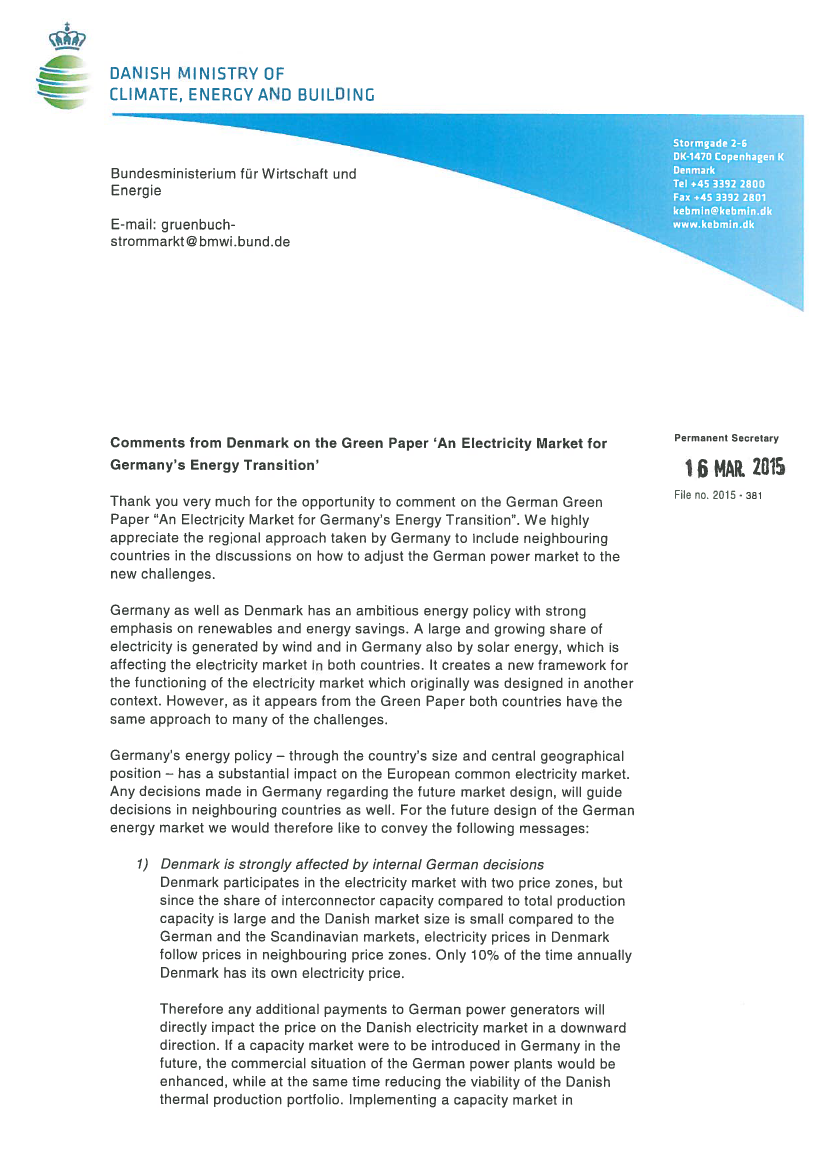
DANISH MINISTRY OF
CLIMATE, ENERGY AND BUILDING
IC
Bundesministerium für Wirtschaft und
Energie
mln@nk
E-mail: gruenbuch
strommarkt@ bmwi.bund.de
Comments from Denmark on the Green Paper ‘An Electricity Market for
Germany’s Energy Transition’
Thank you very much for the opportunity to comment on the German Green
Paper “An Electricity Market for Germany’s Energy Transition”. We highly
appreciate the regional approach taken by Germany to inciude neighbouring
countries in the discussions on how to adjust the German power market to the
new challenges.
Germany as well as Denmark has an ambitious energy policy with strong
emphasis on renewables and energy savings. A large and growing share of
electricity is generated by wind and in Germany also by solar energy, which is
affecting the electricity market in both countries. lt creates a new framework for
the functioning of the electricity market which originally was desigried in another
context. However, as it appears from the Green Paper both countries have the
same approach to many of the challenges.
Germany’s energy policy through the country’s size and central geographical
position has a substantial impact on the European common electricity market.
Any decisions made in Germany regarding the future market design, will guide
decisions in neighbouring countries as well. For the future design of the German
energy market we would therefore like to convey the following messages:
—
—
Permanent Secretary
I 6 MARI. 2015
File no.
2015- 381
1) Denmark is strongly affected by internal German decisions
Denmark participates in the electricity market with two price zones, but
since the share of interconnector capacity compared to total production
capacity is large and the Danish market size is small compared to the
German and the Scandinavian markets, electricity prices in Denmark
follow prices in neighbouring price zones. Only 10% of the time annually
Denmark has its own electricity price.
Therefore any additional payments to German power generators will
directly impact the price on the Danish electricity market in a downward
direction. If a capacity market were to be introduced in Germany in the
future, the commercial situation of the German power plants would be
enhanced, while at the same time reducing the viability of the Danish
thermal production portfolio. Implementing a capacity market in